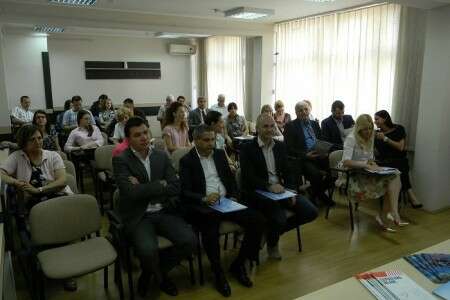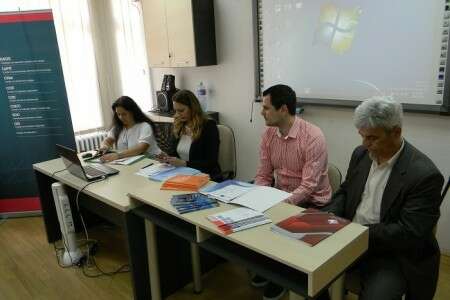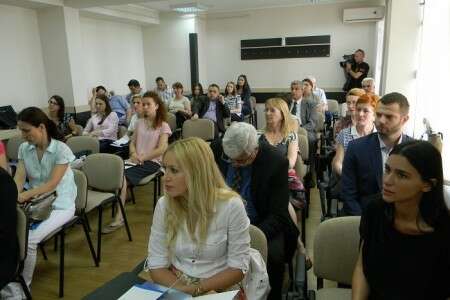The Discussion Forum was held in the Center for Vocational Education in Kruševac on the 10th of June, 2016. The existing and necessary prerequisites for the implementation of quality internships at the local level were discussed within the forum.
The Practical Guide for the organization of internship, which is created by the Union of Employers of Serbia and the National Employment Service was also presented. Participants discussed the inclusion of youth in the labour market, as well as the promotion of internships as an opportunity for both youth and employers.
Local entrepreneurs presented challenges of organizing good quality internships and good practices examples. Challenges of introduction Dual Education system in vocational schools were also discussed. Frequent challenges are the absence of a concrete plan of internships, inadequate preparation of mentors, lack of monitoring of a mentoring process, and non-defined learning goals. If internships were organized in a quality way, it would have benefits for both interns and employers.
Representatives of employers agreed that they need additional support for organizing internships, a clear legal framework, and additional explanations when it comes to the terminology. It was discussed about financial compensation for interns, as well as financial stimulation for mentors who should take care of interns and introduce them to a workplace. In light of that, participants considered questions about using machines on which interns should be trained. If it comes to the failure of machines due to the ignorance of interns, it is questioned how it could be compensated.
This event was organized by Belgrade Open School, in partnership with Union of Employers of Serbia and the National Employment Service Krusevac, and within the Youth Employment Initiative Team for Social Inclusion and Poverty Reduction. By directing of activities of all above actors, it is made the big impact on including youth on the labour market, and on connecting youth with institutions, which is the only way to reduce the gap between the education system and labour market.





